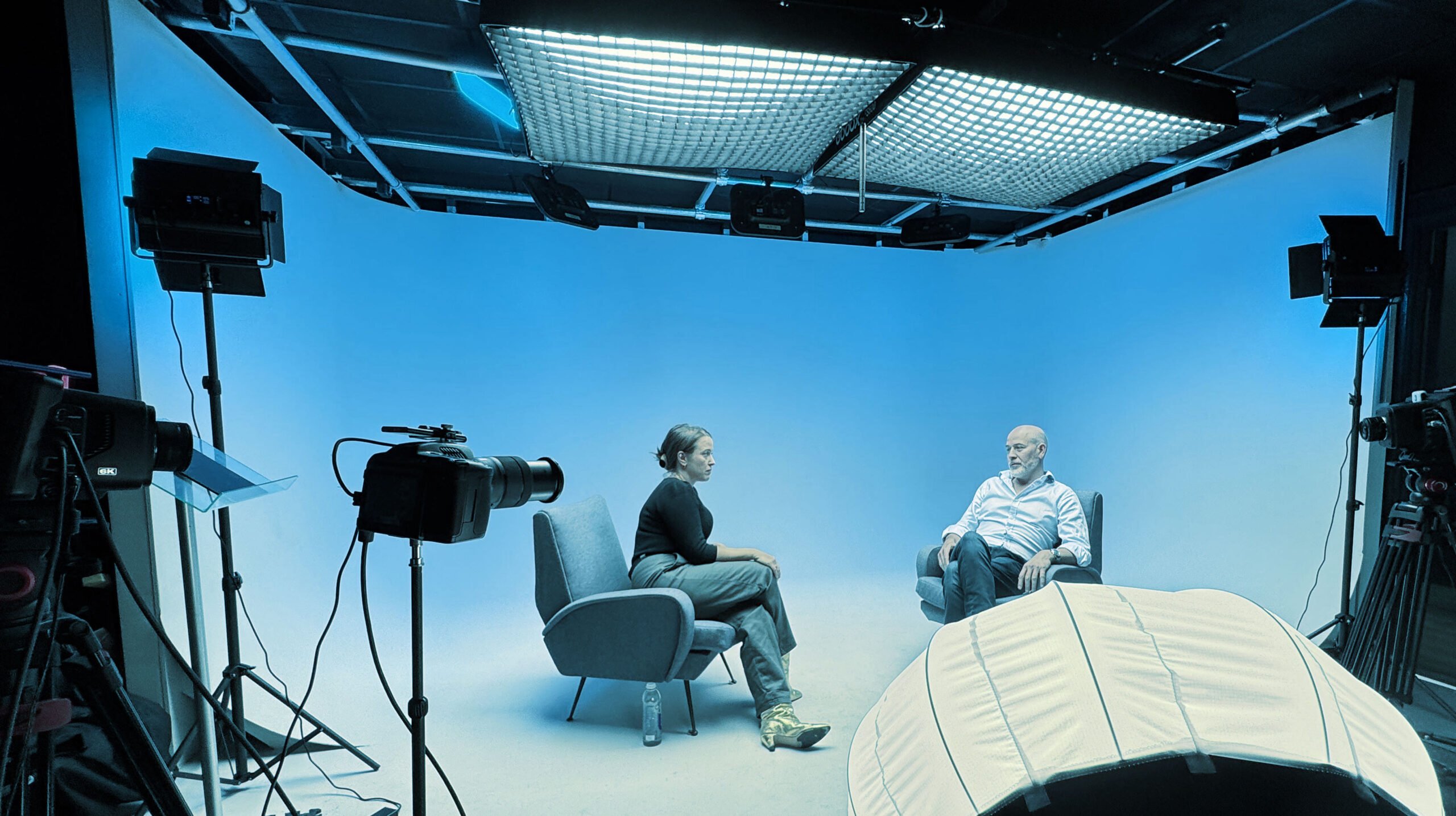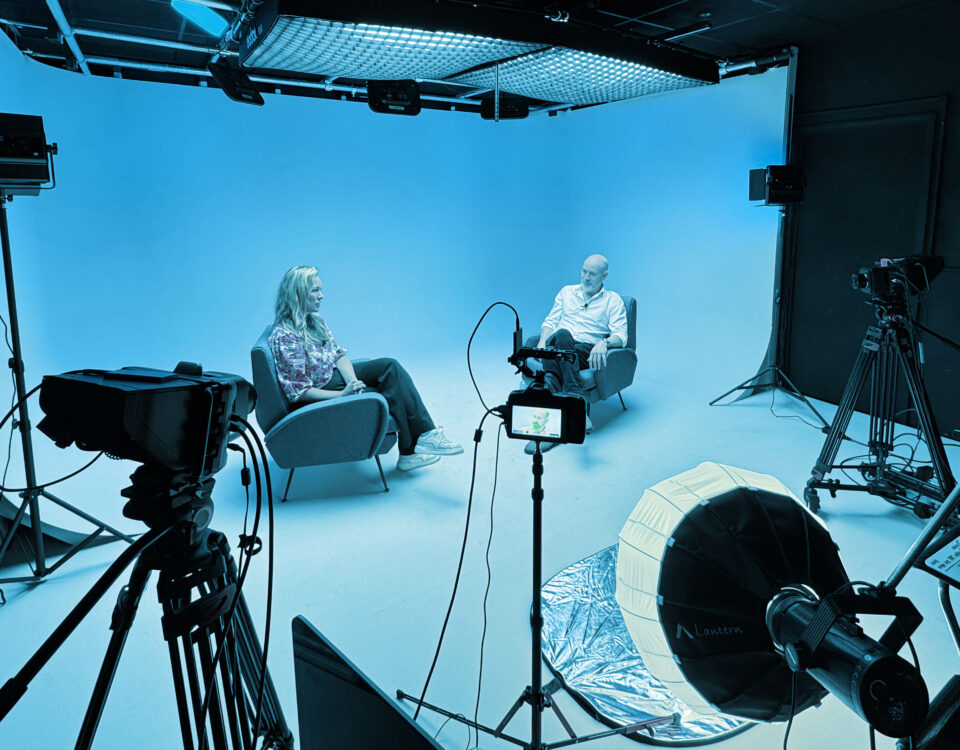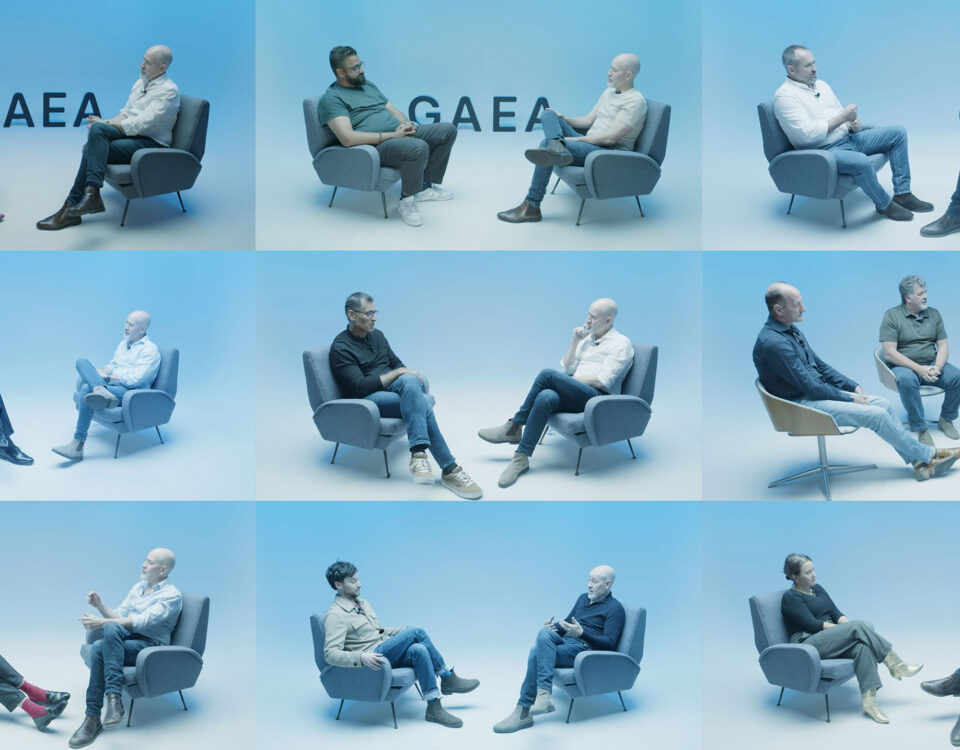A deep dive into GAEA Talks’ latest podcast with digital transformation specialist Robyn Agoston on navigating the AI revolution in the workplace.
The fear that AI will replace human workers dominates headlines, but digital transformation expert Robyn Agoston offers a different perspective. In our latest GAEA Talks episode, she argues: “I do not believe you’re going to get replaced by AI. You’ll be replaced by a human who uses AI.”
A Different Kind of Technology Revolution
Agoston a Digital Transformation and Change Leader, has led digital and AI transformations across global companies like KPMG, GSK, Novartis, Beamery, Tesco, O2, Shell, BP, and AstraZeneca. She emphasises that AI represents a unique technological shift.
“This is the first time we’ve had a technology that doesn’t just change what we do, but how we do it,” she explains. This fundamental difference means organisations cannot simply bolt AI onto existing processes – they need to reimagine their entire operating model. The real problem isn’t the technology, but the human element of change management.
The Value of Human Skills
Agoston believes that as AI automates routine tasks, uniquely human skills will become more valuable than ever. She emphasises judgement, discernment, and creative thinking, traits that are honed through years of experience. A nurse, for example, can sense when a patient is deeply unwell even when tests come back normal. AI, lacking this “gut feeling,” cannot replicate this innate intuition. Instead, it can serve as a powerful thought partner, helping the nurse quickly narrow down potential diagnoses from a vast database of information.
Similarly, in creative fields like advertising, AI can rapidly generate ideas. However, the final product requires the human touch – the ability to tell a story that resonates and connects with an audience on an emotional level.
Practical Steps for Leaders
For leaders wondering where to begin their AI transformation, Agoston offers concrete guidance:
Individual Level:
Develop AI fluency by understanding how models work, their capabilities, and limitations. Move beyond basic AI assistance to true augmentation while applying human judgment to outputs.
Organisational Level
Create cultures that encourage transparent AI experimentation. Provide frameworks for understanding AI risks and invest in collective sense-making. Most importantly, reward both AI adoption and human discernment.
Leadership in the AI Era
The role of managers is evolving from decision-making bottlenecks to facilitators of human potential. This shift requires developing capabilities many current leaders lack: the ability to guide teams through uncertainty while acknowledging they don’t have all the answers. Agoston argues that managers can no longer be the ultimate quality assurance or final decision-makers, instead, they must help individuals make the most of their careers and skillsets.
Traditional management focused on control and oversight, but AI-era leadership demands vulnerability and collaboration. Leaders must create environments where teams can experiment with AI tools, learn from mistakes, and develop collective intelligence about what works and what doesn’t. This means dedicating time for sense-making activities and rewarding both AI adoption and critical thinking about AI outputs.
The challenge is substantial: many current managers rose through ranks based on their expertise and decision-making abilities, not their coaching skills. Yet as Agoston notes, in a world where AI can handle many analytical tasks, the human manager’s value lies in developing other humans and fostering the uniquely human capabilities that AI cannot replicate.
The Long Game
Organisations face a stark choice: pursue short-term cost savings through AI, or invest in long-term human-centered transformation. “Those leaders that are willing to play the long game, recognising it’s a marathon, not a sprint, and recognise the unique value humans bring are the ones that are going to thrive,” Agoston predicts. Her consultancy, HumanFluency.AI , embodies this philosophy, developing both technological and human capabilities.
As AI continues evolving, the organisations that choose human-centered transformation over simple automation will be best positioned not just to survive, but to thrive in our AI-augmented future.
Listen to the full GAEA Talks episode for more insights on navigating AI transformation while keeping human potential at the centre.






